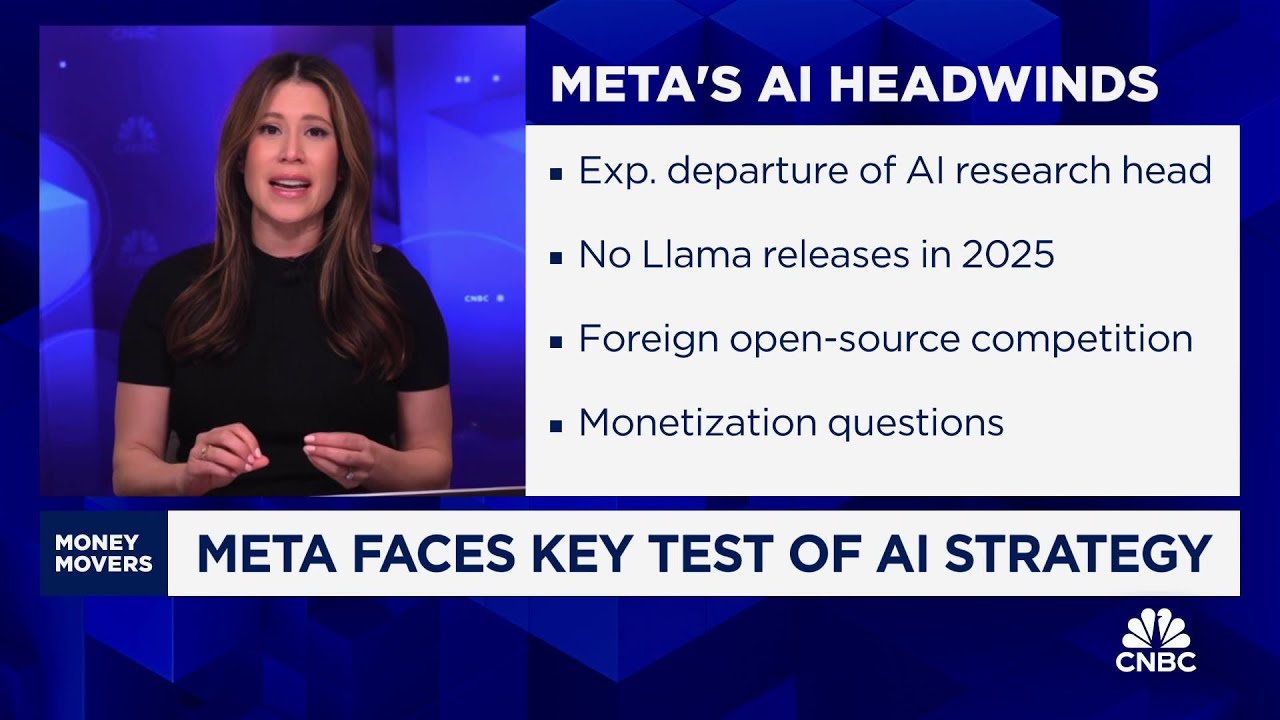Meta is facing significant challenges in its AI strategy, highlighted by the departure of AI research head Joelle Pineau and a lack of major updates to its LLaMA model, while competitors like OpenAI and Google continue to advance rapidly. The upcoming LLaMA conference is a crucial opportunity for Meta to showcase its future AI developments and reaffirm its position in an increasingly competitive landscape, especially with threats from platforms like TikTok.
Meta is currently facing challenges in its AI strategy, as indicated by fluctuations in its stock performance and the recent departure of Joelle Pineau, the head of AI research. Her exit comes at a crucial time when CEO Mark Zuckerberg has prioritized AI development, and the competition in the field is intensifying. The company has not released a major update to its LLaMA model in eight months, which is considered a significant delay in the fast-paced AI landscape, especially compared to competitors like OpenAI and Google, which have launched multiple updates this year.
The competitive landscape for AI is rapidly evolving, with companies like DeepMind and Mistral making significant strides in efficiency and product releases. Meta’s AI chatbot has reportedly seen the lowest daily traffic among major competitors, raising concerns about its market position. In contrast, Elon Musk’s platform, X (formerly Twitter), has experienced notable growth in user engagement, highlighting the shifting dynamics in the AI and social media sectors.
In response to these challenges, Meta is organizing its first-ever LLaMA conference on April 29, where it aims to showcase its future AI developments. Zuckerberg has hinted at new models with enhanced reasoning and agentic capabilities, indicating that the company is still committed to advancing its AI technology. However, the pressure is on for Meta to demonstrate its ability to lead in the open-source AI space, which has become increasingly competitive.
The potential future of TikTok also poses a significant threat to Meta’s business. With discussions around a new ownership structure that could secure TikTok’s presence in the U.S., the competitive landscape for social media could shift dramatically. TikTok’s strength in AI-powered content discovery has already made it a formidable rival, and if it overcomes regulatory hurdles, it could further challenge Meta’s market share.
Overall, the upcoming LLaMA conference is seen as a critical opportunity for Meta to reaffirm its position in the AI sector and showcase its innovations. The company must not only present new products but also demonstrate its capability to set the agenda in a rapidly changing environment, particularly as open-source AI continues to gain traction among developers and users alike.
